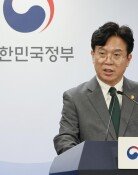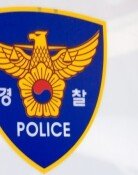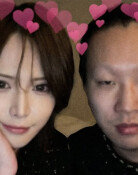Judicial branch is supposed to represent citizens, not political groups
Judicial branch is supposed to represent citizens, not political groups
Posted December. 19, 2023 08:40,
Updated December. 19, 2023 08:40
South Korean citizens were only left frustrated and exhausted by how the judicial branch worked from September 2011, when former Chief Justice Yang Seung-tae took office, to this September, when former Chief Justice Kim Myeong-su left office. The controversy over the monopoly of the judicial system created under former Chief Justice Yang raised skepticism over the separation of powers that supports democracy. Likewise, the judicial system under former Chief Justice Kim was frequently criticized for delaying trials, seen as an infringement of the right to a speedy trial, and going against the legal maxim, "Justice delayed is justice denied.”
Over the past 12 years, there has always been a growing question about whether the judicial body of the Republic of Korea truly represents its citizens. Since it came under suspicion of working in the interest of particular political circles, citizens have been divided into the two groups. Liberals argue that former Chief Justice Yang colluded with the conservative administration to contribute to the monopoly of the justice system while conservatives criticize that former Chief Justice Kim appointed pro-liberal candidates to major posts and intentionally delayed trials concerning opposition party members.
Technically speaking, the judicial branch is not an immediate representative of citizens because its members are not elected by voters unlike the legislative and administrative branches. The Chief Justice of the Supreme Court of Korea is appointed by the president with the consent of the National Assembly, and the Chief Justice of the Supreme Court of Korea is in charge of appointing judges, whereas people elect the president and legislators. This may give a plausible excuse for the argument that the judicial branch does not necessarily represent the interests of citizens.
Having said that, the judicial system is supposed to serve as a last resort and provide the final bastion of basic rights when citizens seek help for an infringement of rights. This may explain why the federal judges in the United States Supreme Court are called ‘Justice’ because citizens expect them to act as an incarnation of justice.
It is only a matter of time before democracy collapses if the judicial branch does not work for the sake of citizens although the two other branches do their job. Only the judicial members are not elected by citizens because becoming a judge requires a highly sophisticated level of professionalism and morality. After all, we have heard too many stories from many parts of the globe that elected officials end up being professionally incapable or abusing power. The fact that the judicial branch is not elected by voters makes it all the more important for its members to be professional, morally responsible and representative of citizens. It is a paradoxical obligation of the judicial branch for the sake of democracy and a social and historical obligation that citizens give to it.
All eyes are on Chief Justice Cho Hee-dae, who passed national assembly approval on Dec. 8, as he is considered the right person to put an end to 12 years of public disappointment regardless of political orientation. Although initially sharpening their criticism of the appointee’s conservative political views, opposition parties' lawmakers highly commended the appointee as having an unblemished reputation for integrity and morality during a National Assembly confirmation hearing. Opposition parties generally voted in favor of his confirmation, with only 18 votes against him in a plenary session.
“The judicial system did not give complete protection to citizens when the country was put under the threat of the mighty power,” Chief Justice Cho said in his inaugural address. “It ended up discriminating between the rich and the poor although it places a high value on equity and fairness in principle.” The legal circles interpreted his message as a reflection of his strong determination to give equal treatment to both conservatives and liberals. It is hoped that Chief Justice Cho will stay firmly determined to ensure that the judicial branch represents citizens' voices rather than being swayed by political ideologies.







